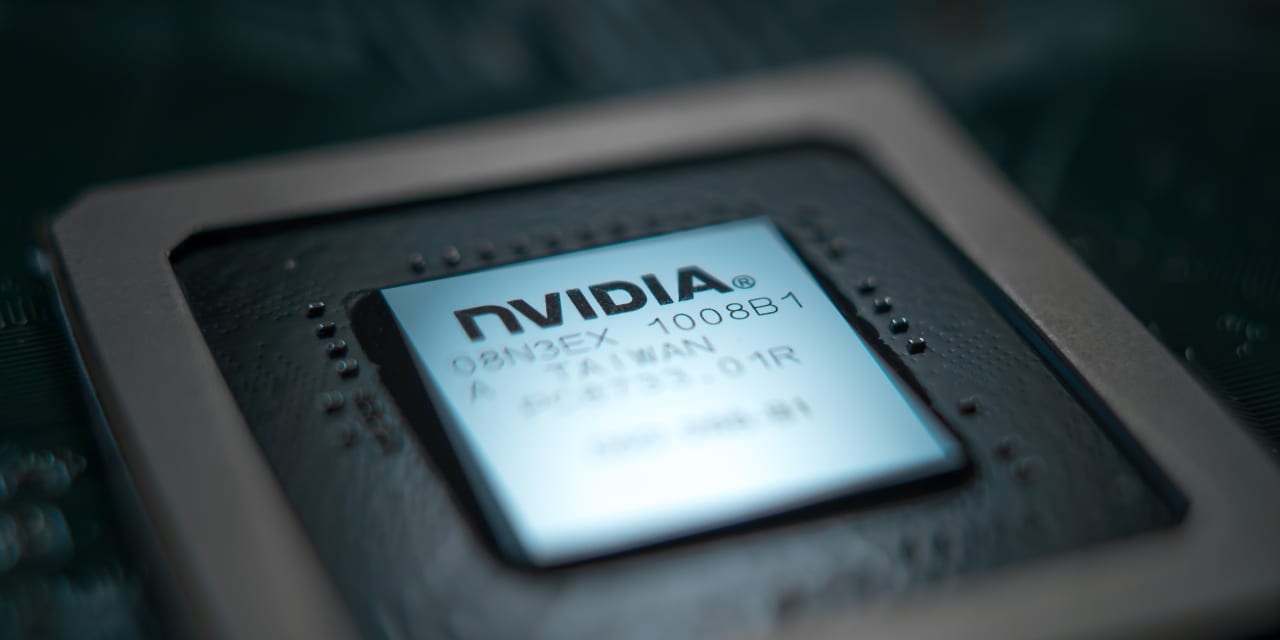AI Chip Exports: Nvidia CEO's Appeal To The Trump Administration

Table of Contents
The Context of the AI Chip Export Restrictions
The Trump administration's tightening of AI chip export controls was enacted against a backdrop of escalating geopolitical tensions and concerns about the proliferation of advanced technologies. The rapid advancements in artificial intelligence spurred anxieties surrounding its potential misuse, particularly in military applications. The export restrictions reflected a broader strategy to safeguard US national security interests and maintain a technological edge over global competitors, notably China.
- Growing concerns about the use of AI in military applications: The potential for autonomous weapons systems and other military AI applications fueled fears of an AI arms race.
- The potential for advanced AI chips to fall into the wrong hands: High-performance AI chips are crucial for developing sophisticated AI systems, raising concerns about their potential use in malicious activities, including cyber warfare and the development of advanced weaponry.
- US efforts to maintain a technological edge over competitors like China: The US government aimed to prevent the transfer of cutting-edge AI technology to China, perceived as a significant competitor in the global AI race.
- Specific examples of restrictions imposed: These included limitations on exports of specific high-performance AI chips to certain countries, requiring companies like Nvidia to obtain special licenses for each transaction, significantly delaying shipments and impacting business operations. This encompassed restrictions related to both hardware and software components integral to AI chip export.
Nvidia's Position and the CEO's Appeal
Nvidia, a major producer of graphics processing units (GPUs) – the workhorse of many AI systems – argued that the stringent AI chip export controls hindered US innovation and economic growth. CEO Jensen Huang's appeal to the Trump administration emphasized the detrimental effects of these restrictions on the US economy and its competitiveness in the global AI market.
- Emphasis on the economic benefits of AI chip exports: Nvidia highlighted the significant job creation and economic growth stimulated by the global AI industry, arguing that restrictions would stifle this growth and benefit foreign competitors.
- Argument that restrictions hurt US competitiveness and benefit competitors: Nvidia contended that by restricting exports, the US was effectively handing a competitive advantage to other countries, allowing them to develop and deploy AI technologies faster.
- Claims that robust export controls already mitigate security risks: Nvidia argued that existing export control mechanisms were sufficient to address national security concerns, and that overly restrictive measures were unnecessary and counterproductive.
- Specific examples from Huang's statements or public appearances: While precise details may vary depending on the specific statements, Huang consistently emphasized the importance of collaboration and free exchange of technology to foster AI innovation, arguing against policies that hampered this.
The Trump Administration's Response and its Implications
The Trump administration's response to Nvidia’s appeal was complex and multifaceted, with varying levels of restrictions applied at different times. While specific details regarding internal discussions and decision-making processes remain largely unavailable, some potential reasons for the approach taken include a prioritization of national security concerns over short-term economic gains and a belief that stricter AI technology export restrictions were necessary to counter China's growing technological prowess.
- Analysis of the potential reasons behind the administration's decision: A primary driver was likely the perceived threat posed by the potential proliferation of advanced AI technologies to adversaries.
- The impact of the restrictions on Nvidia's business and the broader AI industry: The restrictions significantly impacted Nvidia's revenue and hampered its ability to compete effectively in international markets, with knock-on effects on the broader AI ecosystem.
- Long-term consequences for US technological leadership: Some analysts argue that the restrictions may have inadvertently accelerated the development of AI capabilities in other countries, potentially compromising US technological leadership in the long run.
- Comparison with export control policies of other nations: The US approach to AI chip export was stricter than those adopted by some other countries, highlighting differences in strategic priorities and geopolitical concerns.
The Broader Implications for the US AI Ecosystem
The export control policies on AI chip exports had far-reaching consequences for the US AI ecosystem, impacting research, development, and innovation across the board.
- Impact on academic research reliant on access to advanced AI chips: Universities and research institutions faced challenges in acquiring the necessary hardware for cutting-edge AI research, potentially slowing down progress in fundamental AI research.
- Slowdown in the development of new AI applications and technologies: Restricted access to advanced AI chips hampered the development of new AI applications across various sectors, including healthcare, finance, and transportation.
- Potential for brain drain as talent moves to countries with less restrictive policies: Researchers and engineers may be drawn to countries with more open access to advanced technologies, potentially weakening the US AI talent pool.
- Long-term consequences for the US economy and global technological standing: The cumulative effect of these factors could undermine the US's long-term economic competitiveness and global standing in the AI domain.
Conclusion
The debate surrounding AI chip exports and the Trump administration's response underscores the complex interplay between national security, economic competitiveness, and technological innovation. Nvidia's appeal highlighted the potential for overly restrictive policies to inadvertently hinder US progress in AI, while the administration's actions reflected a determination to mitigate perceived security risks. The long-term consequences of this policy remain to be seen, but its impact on the US AI ecosystem is undeniable. Further investigation into the ongoing debates surrounding AI chip exports, and their implications for future technological development and national security, is crucial. We encourage readers to stay informed on the latest developments in this critical area.

Featured Posts
-
 Pm Modis France Visit Key Highlights Ai Summit And Business Engagement
May 03, 2025
Pm Modis France Visit Key Highlights Ai Summit And Business Engagement
May 03, 2025 -
 London Fashion Week Kate And Lila Mosss Stunning Matching Lbds
May 03, 2025
London Fashion Week Kate And Lila Mosss Stunning Matching Lbds
May 03, 2025 -
 Energy Policy Changes Following Guido Fawkes Assessment
May 03, 2025
Energy Policy Changes Following Guido Fawkes Assessment
May 03, 2025 -
 Lotto Plus 1 And Lotto Plus 2 Check The Latest Draw Results
May 03, 2025
Lotto Plus 1 And Lotto Plus 2 Check The Latest Draw Results
May 03, 2025 -
 The Fallout Justice Departments School Desegregation Order And Anticipated Legal Challenges
May 03, 2025
The Fallout Justice Departments School Desegregation Order And Anticipated Legal Challenges
May 03, 2025
